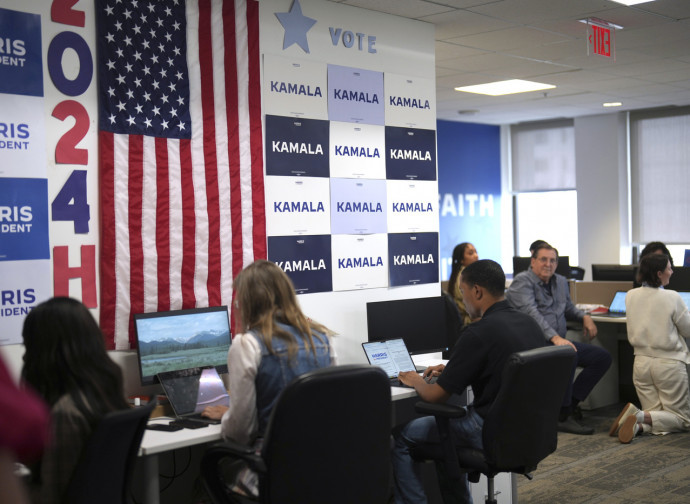‘Money talks’: financiers and pollsters in US elections
The more unique than rare characteristics of American elections make two figures essential: the pollster and the financier. They invest in the winner and probe to see how the candidate is faring.

American presidential election campaigns are probably the longest in the world. The search for likely candidates and the campaigning until election day stretches out almost as long as the four-year presidential term. With this longevity, presidential politics have produced a superabundance of monetary contributions and popularity polls ad nauseam. Both have become important industries and essential ingredients of American politics.
The current campaign for the November 5 presidential elections already has generated millions of dollars for both Republican and Democratic candidates. Every month each party must report financial data to the Federal Election Commission, an independent monitoring government agency. In June 2024, the Trump campaign reported receiving $21 million, spending $10 million and having $128 million on hand. The Biden campaign stated it received $64 million, spent $59 million and held $95 million.
Given that Biden announced on July 21 that he was no longer running for re-election, his funds should turn over to Vice President Kamala Harris given that she was endorsed by Biden – but she remains to be nominated as the actual candidate by Democratic Party delegates. Republican candidate Donald Trump has challenged the money transfer to Harris. However, according to press reports, Harris raised over $200 million, an unprecedented amount in the week following Biden’s decision to abandon the race.
The United States boasts of many millionaires and a few billionaires, from Hollywood stars to corporate and financial tycoons who easily and willingly donate millions of dollars to their favorite candidates, sometimes also offering advice, along with the money, as to what candidates should do if elected.
An interesting case is that of actor George Clooney. He donated $30 million to the Biden campaign, was turned off by Biden’s disastrous performance in the June 27 debate against Trump, wrote an opinion article in the New York Times urging Biden to step down, and now favors Harris. He is likely to give more money to her campaign.
There is an old American expression: “money talks.” It seems to be speaking rather loudly this year as daily amounts raised by both candidates speak of record amounts, in the low billions of dollars, by the time the campaign ends. As the money is spent, political advertisements from social media to television to city buses will deluge the American public until the very last day.
As politicians spend money on promoting their campaigns, they follow the impact of their sp ending on the public via the many polling results, as if intensely watching a major horse race. There are many pollsters in the Unites States and hardly a day goes by when one or another announces its latest findings. All had indicated a close race for the Trump-Biden contest. The first few Trump-Harris polls pointed to gains by Harris as it seems to be a given that she has no rivals. Once Harris is nominated and she chooses her vice president, more meaningful polls will swiftly follow comparing the popularity of the two tickets.
Besides the race itself, polls also cover the candidates standing on the issues of the day. A few quick polls taken after Harris’ nomination showed that respondents favored Trump over Harris to better handle matters relating to the economy and migration while Harris is better qualified in safeguarding abortion.
Going forward, a good deal of spending and polling will focus on how voters feel in the so-called “swing states” which could vote either way and decide the election outcome: Arizona, Georgia, Michigan, Pennsylvania, and Wisconsin. Being populous states, they are important due to their electoral votes.
American presidential elections are decided by the results of an electoral college representing the total of congressional representatives and senators from all 50 states and the District of Columbia (Washington DC). There are 538 electoral votes and whoever gets a majority of these votes in the states is elected the new president.
In presidential elections, the majority of votes cast in the nation as a whole is not the decisive factor, rather the state-by-state tally that choose the electors. The unique features of the American system contribute to the quest for funds and polls.
______________________________
* Vincenzina Santoro is an international economist. She represents the American Family Advocates at the United Nations.
2024 election campaign symbolizes America's "night"
Septuagenarian Trump and octogenarian Biden are running for the presidency. The electorate is confused because of secularization, vices and cancel culture. The (only?) hope for America is for a younger electable Republican to break through in the primaries and end the darkness with a new dawn to reinvigorate American democracy.
Biden’s exit puts Harris “gamble” under scrutiny
Biden has endorsed his vice-president to replace him for the nomination. A choice that represents continuity. But until now she is noted only for her support for abortion and her failure in the one task entrusted to her: resolve America’s illegal immigration problems.
